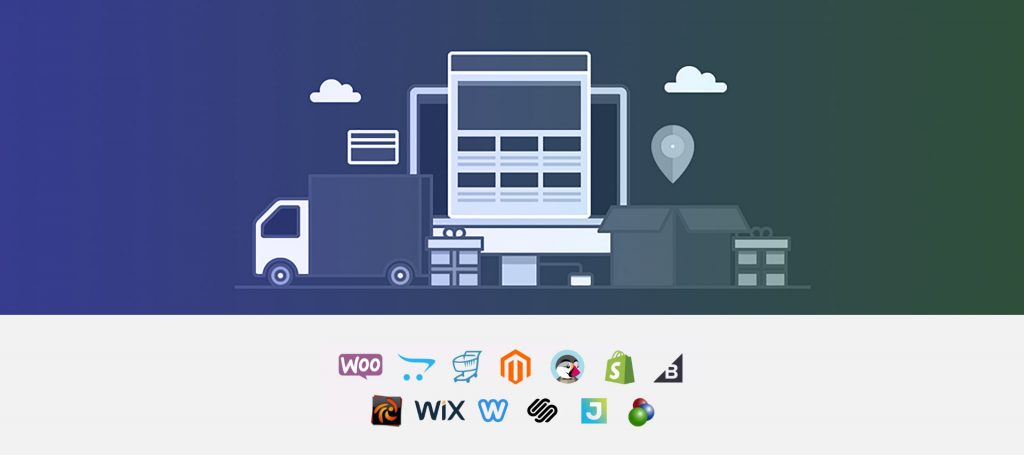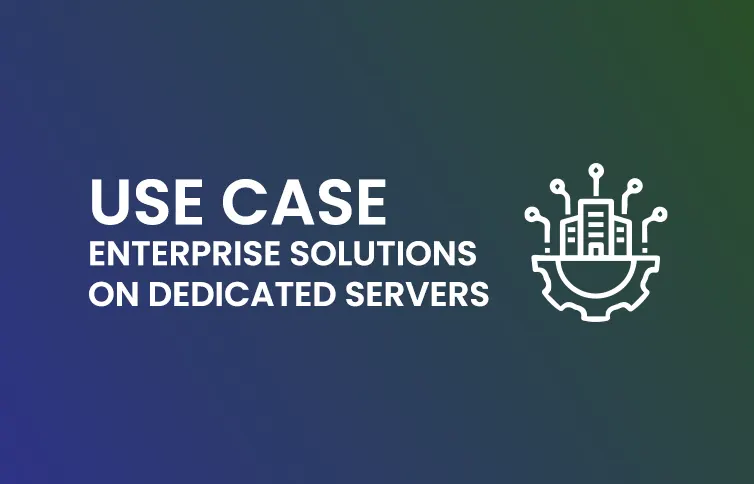VPS Hosting: The Ideal Solution for Your Ecommerce Website
In today’s digital age, having a robust online presence is crucial for any business, especially in the ecommerce sector. As an IT professional, manager, or business owner, you’re likely aware of the importance of choosing the right hosting solution for your ecommerce website. But with so many options available, how do you determine which one is best suited for your needs? In this comprehensive guide, we’ll explore VPS (Virtual Private Server) hosting and why it’s an excellent choice for ecommerce websites. If you are still confused on about what is virtual private server then do not hesitate and contact us, our experts will clear all your points and doubts.

What is Ecommerce Hosting?
Before diving into the specifics of VPS hosting, let’s first understand what ecommerce hosting solution entails. Ecommerce hosting is a specialized type of web hosting service designed to support online stores and their unique requirements. It provides the necessary infrastructure, security features, and performance capabilities to run an ecommerce website effectively.
Key Features of Ecommerce Hosting
- Robust security measures to protect sensitive customer data
- High uptime guarantees to ensure your store is always accessible
- Scalability to handle traffic spikes during peak shopping seasons
- Support for ecommerce platforms and shopping cart software
- PCI DSS compliance for secure payment processing
Now that we have a basic understanding of ecommerce hosting, let’s explore why VPS hosting is often considered the best option for ecommerce sites.
For businesses looking to elevate their online store’s performance, VPS hosting offers an ideal solution. With its dedicated resources and enhanced security, VPS ensures optimal speed and reliability for your e-commerce site. To learn more about the benefits and key considerations of VPS hosting, explore our blogs: What Point Should You Consider Using VPS Hosting? and Why Your Business Needs VPS hosting?
VPS Hosting: A Perfect Fit for Ecommerce
VPS hosting offers a unique blend of performance, flexibility, and cost-effectiveness that makes it an ideal choice for many ecommerce businesses. Here’s why:
1. Dedicated Resources
With VPS hosting, your ecommerce site gets its own allocated resources, including CPU, RAM, and storage. This means you don’t have to share these resources with other websites, as you would with shared hosting. The result? Faster loading times and better overall performance for your online store.
2. Scalability
As your ecommerce business grows, so will your hosting needs. VPS hosting allows you to easily scale your resources up or down based on your requirements. This flexibility is particularly valuable during high-traffic periods like holiday sales or promotional events.
3. Enhanced Security
Security is paramount for ecommerce websites, given the sensitive nature of customer data and payment information. VPS hosting provides a more secure environment compared to shared hosting, as your site is isolated from other users on the same physical server.
4. Customization Options
VPS hosting gives you greater control over your hosting environment. You can choose your preferred operating system, install custom software, and configure your server settings to optimize performance for your specific ecommerce platform.
Managed vs. Unmanaged VPS: Which is Right for You?
When considering VPS hosting for your ecommerce site, you’ll need to decide between managed and unmanaged VPS options. Let’s break down the differences:
Managed VPS
With managed VPS hosting, your hosting provider takes care of most server management tasks, including:
- Server setup and configuration
- Security updates and patches
- Performance monitoring and optimization
- Backups and disaster recovery
Managed VPS is an excellent choice for those who want to focus on running their ecommerce business without worrying about the technical aspects of server management.
Unmanaged VPS
Unmanaged VPS gives you full control over your server, but also requires you to handle all management tasks yourself. This option is best suited for IT professionals or businesses with in-house technical expertise.
Pro Tip: If you’re new to server management or don’t have dedicated IT staff, opt for managed VPS hosting to ensure smooth operation of your ecommerce site.
How to Manage a VPS Server
If you choose an unmanaged VPS or want to have more control over your managed VPS, here are some key aspects of server management you should be familiar with:
1. Accessing Your VPS
To manage your VPS, you’ll need to connect to it remotely. This is typically done using SSH (Secure Shell) for Linux-based systems or Remote Desktop Protocol (RDP) for Windows servers.
2. Updating and Securing Your Server
Regular updates and security patches are crucial for maintaining a secure hosting environment. Some important tasks include:
- Updating your operating system and installed software
- Configuring a firewall
- Implementing strong password policies
- Setting up intrusion detection systems
3. Monitoring Performance
Keep an eye on your server’s performance to ensure it’s meeting the demands of your ecommerce site. This involves:
- Monitoring resource usage (CPU, RAM, disk space)
- Analyzing server logs
- Setting up alerts for potential issues
4. Backing Up Your Data
Regular backups are essential for protecting your ecommerce site’s data. Implement a robust backup strategy that includes:
- Automated daily backups
- Off-site backup storage
- Regular testing of backup restoration processes
VPS Operating Systems: Choosing the Right One for Your Ecommerce Site
The choice of operating system for your VPS can significantly impact your ecommerce site’s performance and management. Let’s explore some popular options:
Linux VPS Server Hosting
Linux is a popular choice for Linux VPS hosting due to its stability, security, and flexibility. Some common Linux distributions for VPS hosting include:
Ubuntu VPS Hosting
Ubuntu VPS server is known for its user-friendliness and regular updates. It’s a great choice for those new to Linux server management.
CentOS VPS
CentOS VPS hosting is valued for its stability and long-term support, making it a popular choice for enterprise-level ecommerce sites.
Debian VPS Server
Debian VPS Server is renowned for its reliability and extensive software repositories, making it a solid choice for ecommerce hosting.
Fedora VPS
Fedora VPS hosting is known for its cutting-edge features and frequent updates, which can be beneficial for ecommerce sites requiring the latest technologies.
Windows VPS
Windows VPS is an excellent choice if your ecommerce site relies on Windows-specific technologies or if you’re more comfortable with the Windows environment.
Note: When choosing an operating system, consider factors such as your team’s expertise, the requirements of your ecommerce platform, and the availability of support resources.
VPS Platforms: Optimizing Your Ecommerce Hosting
VPS platforms provide the underlying infrastructure for your virtual private server. Some popular VPS platforms include:
1. KVM (Kernel-based Virtual Machine)
KVM is an open-source virtualization technology that provides excellent performance and stability for VPS hosting.
2. OpenVZ
OpenVZ is known for its efficiency and ease of management, making it a popular choice for VPS hosting providers.
3. Xen
Xen is a robust virtualization platform that offers strong isolation between virtual machines, enhancing security for ecommerce sites.
4. VMware
VMware is a leading virtualization platform known for its reliability and advanced features, often used in enterprise-level hosting environments.
When selecting a VPS hosting provider, consider which platform they use and how it aligns with your ecommerce site’s requirements.
Optimizing Your VPS for Ecommerce Performance
To ensure your ecommerce site runs smoothly on your VPS, consider implementing these optimization strategies:
1. Use a Content Delivery Network (CDN)
A CDN can help distribute your site’s static content across multiple servers worldwide, reducing load times for visitors from different geographical locations.
2. Implement Caching
Utilize server-side caching mechanisms to reduce database queries and improve page load times for your ecommerce site.
3. Optimize Your Database
Regular database maintenance, including optimizing queries and indexing, can significantly improve your site’s performance.
4. Enable Compression
Implement GZIP compression to reduce the size of files sent from your server to visitors’ browsers, improving load times.
5. Use SSL Certificates
Ensure your ecommerce site uses SSL encryption to protect customer data and improve search engine rankings.
Conclusion
Choosing the right hosting solution for your ecommerce website is a critical decision that can significantly impact your business’s success. VPS hosting offers an excellent balance of performance, managed security, and flexibility, making it an ideal choice for many ecommerce sites.
By understanding the key aspects of VPS hosting, including the differences between managed and unmanaged options, various operating systems, and optimization strategies, you can make an informed decision that best suits your ecommerce needs.
Remember, the best hosting solution for your ecommerce site will depend on factors such as your technical expertise, budget, and specific business requirements. Take the time to evaluate your options carefully, and don’t hesitate to consult with hosting providers or IT professionals to find the perfect VPS hosting solution for your online store.
With the right VPS hosting setup, you’ll be well-equipped to provide a fast, secure, and reliable shopping experience for your customers, setting the foundation for long-term ecommerce success.
Learn more about the top 10 benefits of VPS hosting and its advantages.
Related Articles
- VPS Hosting: The Ideal Solution for Your Ecommerce Website
- What is Ecommerce Hosting?
- VPS Hosting: A Perfect Fit for Ecommerce
- Managed vs. Unmanaged VPS: Which is Right for You?
- How to Manage a VPS Server
- VPS Operating Systems: Choosing the Right One for Your Ecommerce Site
- VPS Platforms: Optimizing Your Ecommerce Hosting
- Optimizing Your VPS for Ecommerce Performance
- Conclusion




